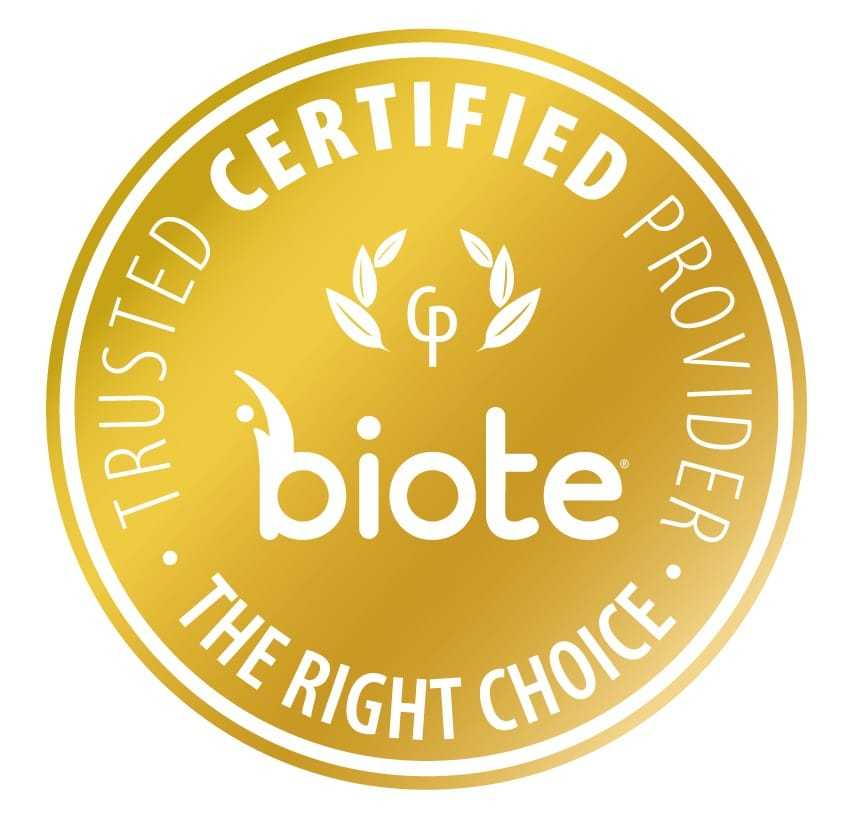HORMONE Replacement THERAPY for Women
Shreveport, LA
See what people are saying
What are the Signs You Need Hormone Replacement Therapy?
As you approach menopause, Ovaries cease producing large amounts of estrogen and progesterone. As a result, uncomfortable symptoms might arise from changes in hormone levels. The most effective treatment for menopause symptoms is hormone replacement therapy, referred to as HRT or menopausal hormone therapy.
WHAT IS MENOPAUSE?
Menopause is the name given to the period of natural change in a woman’s life when she stops producing functional reproductive eggs. Her body goes through a lot of hormonal adjustment at this time, and the symptoms can be challenging to live with. The symptoms differ from woman to woman but typically include variations on mood swings, anxiety, irritability, night sweats, hot flashes, loss of libido, and vaginal dryness. Dr. Vanderloos helps her patients to manage their hormonal changes and symptoms to live more comfortable lives.
WHAT ARE THE SYMPTOMS OF MENOPAUSE?
The decrease in hormone synthesis in your body can result in various symptoms, such as vaginal drying, headaches, insomnia, and hot flashes. In addition, these chemical changes might influence your brain, resulting in unpredictable emotions, melancholy, anxiety, and memory issues.
However, the significant adjustments in the body might have life-threatening complications. For example, your blood pressure and bone density might be impacted by the loss of estrogen, increasing the risk of heart disease and stroke. Using hormone replacement treatment (HRT), you can replenish the substances your body no longer produces.
WHAT TREATMENTS ARE USED TO MINIMIZE SYMPTOMS?
Dr. Vanderloos will work closely with her patient to ensure that the best menopause treatments are applied to reduce the uncomfortable symptoms many women experience. She may suggest alternative therapies to reduce symptoms, including meditation, relaxation techniques, and acupuncture.
Many women benefit from merely taking enough time to themselves for self-nurturing. Dr. Vanderloos may suggest lifestyle changes, including dietary variations and increased activity levels.
Sometimes spicy foods and caffeine can trigger hot flashes or sleeplessness. Increased activity helps maintain a healthy weight and boosts the feel-good chemicals in the brain, like serotonin. In some cases, hormone therapy may be suggested as medical treatment. Depending on the individual, Dr. Vanderloos may prescribe a combination of estrogen and progesterone or estrogen on its own.
Testosterone is another hormone that declines with menopause, and replacing it can make a massive difference for some patients. We take a careful history and check lab values and make recommendations based on each patient’s needs.
WHAT IS HORMONE THERAPY (HT)?
Hormone replacement therapy is a medicine that contains female hormones to replace the estrogen your body stops making after menopause. Estrogen can be replaced as a pill (which will pass through the liver after the stomach and this method has slightly greater risk for blood clots, especially if you are a smoker. The transdermal estrogen by patch or gel, does NOT pass through the liver, but goes directly to the site of treatment, and has less risk of clots than the pills. Estrogen and smoking are not a good combination, so it is always better to stop smoking and use your estrogen.
If you are a victim of hormonal imbalance after menopause, an estrogen cream, ring, or patch might be helpful. While the levels change, the slow-release delivery systems provide a constant baseline. In addition, oral hormone therapy is advantageous for some ladies.
WHAT ARE THE BENEFITS OF HORMONY REPLACEMENT THERAPY?
Hormone therapy addresses two common menopausal symptoms: hot flashes and vaginal pain. Hormone therapy has also been demonstrated to reduce fractures and halt bone loss in postmenopausal females. This implies that hormone therapy addresses the major post-menopause issues.
Unfortunately, hormone therapy has some side effects associated with it. These risks are influenced by the type of hormone therapy, the dosage, the length of the course, and individual health concerns. Therefore, for successful results, Dr. Vanderloos will tailor the treatment depending on the patient to prevent any life-changing side effects. In addition, she will ensure the benefits outweigh the potential drawbacks.
HOW DOES HORMONE THERAPY WORK?
When a woman goes through the natural changes of menopause, her hormone levels will fluctuate and eventually decrease. While these changes are completely normal, some women would prefer to reduce their symptoms. Hormone therapy (HRT) replaces those no longer made by the body and can reduce hot flashes and vaginal dryness. HRT can be taken in pill, skin patch, gel, cream, spray form or pellet form. There is also an option for low-dose estrogen to be applied directly to the vagina in a ring, tablet, or cream form to address dryness issues and we have non-hormonal management of vaginal symptoms including medications and Mona Lisa Touch. Hormone therapy can help many women but will need to be discussed in detail with Dr. Vanderloos to determine if it is the best choice for each patient. While the symptoms can be similar, each woman has a unique experience during menopause. Dr. Vanderloos, a leading gynecologist based in Shreveport, LA, can help women manage their symptoms and cope with hormonal fluctuations associated with this time of life.

WHO CAN BENEFIT FROM HORMONE THERAPY?
Hormone replacement therapy benefits women who underwent menopause early before the usual time. The medication safeguards their cardiovascular system and bones for the rest of their lives. Estrogen pills are advantageous for females who have recently undergone ovarian surgery or experienced an abrupt change in their reproductive health. Hormone balance through HRT greatly helps women suffering from severe menopause symptoms. Physicians recommend hormonal replacement therapy in such circumstances until your body heals. Fortunately, it eliminates severe symptoms if the patient adheres to the treatment keenly as advised. Come visit us in the Shreveport, LA area today.
WHAT ARE THE TYPES OF HORMONE THERAPY (HT)?
The two main types of Hormone Replacement Therapy (HT) are:
- Estrogen Treatment
Most frequently, doctors recommend a modest amount of estrogen to be applied daily as a patch or pill. Additionally, doctors may administer estrogen as a cream, vaginal ring, gel, or spray. However, if you want to ease the symptoms of menopause and avoid osteoporosis, you should use the least amount of estrogen possible.
- Progestin/Estrogen Hormone Therapy (EPT):
This hormone therapy, also known as combination therapy, combines doses of estrogen and progesterone (or progestin, a synthetic form of progesterone). It is highly effective if conducted correctly.
DOES IT MATTER IF ONE HAS A UTERUS OR NOT WHEN CHOOSING THE TYPE OF HORMONE THERAPY TO USE?
Your doctor prescribes estrogen coupled with progesterone or progestin if you have your uterus (progesterone-like medication). This is because estrogen alone can encourage the growth of the uterine lining, raising the risk of endometrial cancer without progesterone to counteract it. However, you won’t need to take a progestin if you’ve undergone a hysterectomy.
HOW LONG SHOULD ONE TAKE HORMONE THERAPY (HT)?
The length of time you can use hormone therapy is generally unrestricted. However, it would be best if you used the least time possible under hormone therapy, and your treatment plan should be reviewed annually as part of routine monitoring. In addition, visit your doctor to discuss whether it is still safe to take HT if you experience an onset of a new medical problem while taking it.
HORMONE THERAPY BY DR. VANDERLOOS
Dr. Vanderloos provides treatment for menopausal symptoms. Options for hormone treatment include lotions, gels, pills, and patches, among others. Examining the advantages and disadvantages of every proposed course of treatment is crucial. Fortunately, you don’t have to decide by yourself.
Contact Dr. Vanderloos to review your symptoms and concerns. Dr. Vanderloos will help you develop an ideal treatment plan to help you regain your self-worth. You can reach Dr. Vanderloos at (318) 269-7799.
DR. VANDERLOOS’ OTHER GYNECOLOGICAL SERVICES
VISIT CATHERINE VANDERLOOS, MD
Address:
460 Ashley Ridge Blvd | Suite 200
Shreveport, LA 71106
Phone: 318-865-4333



